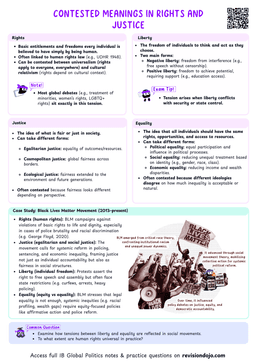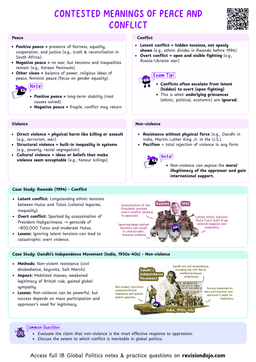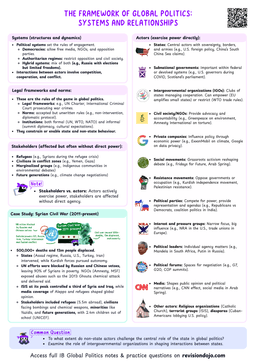Intergovernmental Organizations (IGOs): An Overview
What Are Intergovernmental Organizations?
Intergovernmental organizations
IGOs are entities created by sovereign states to facilitate cooperation on specific issues.
- Membership: Comprised of member states that voluntarily join and participate.
- Purpose: Address transnational challenges such as security, trade, health, and environmental protection.
Key Characteristics of IGOs
- Formal Structure: IGOs have a defined organizational framework, including charters, treaties, and governing bodies.
- Sovereign Membership: Only sovereign states can be members, though some IGOs allow observer status for non-state actors.
- Decision Making Processes: Vary from consensus-based to majority voting, often reflecting the power dynamics among member states.
- Legal Personality: IGOs possess international legal status, enabling them to enter agreements and interact with states and other organizations.
- IGOs differ from non-governmental organizations (NGOs), which are typically private, non-profit entities that operate independently of state control.
Types of Intergovernmental Organizations
- Global IGOs
- Operate on a worldwide scale, addressing universal issues.
- Example: The United Nations (UN) focuses on peace, security, human rights, and development.
- Regional IGOs
- Focus on specific geographic areas, often addressing regional challenges.
- Example: The European Union (EU) promotes economic integration and political cooperation among European states.
- Functional IGOs
- Specialize in particular sectors or issues.
- Example: The World Health Organization (WHO) focuses on global health.
The Role of IGOs in Global Politics
- Facilitating Cooperation: IGOs provide a platform for states to negotiate, collaborate, and resolve conflicts.
- Setting Norms and Standards: IGOs establish international norms, such as human rights standards or trade regulations.
- Providing Technical Assistance: Many IGOs offer expertise, funding, and resources to member states.
- Monitoring and Enforcement: IGOs monitor compliance with international agreements and may enforce sanctions or penalties.
- The World Trade Organization (WTO) enforces trade agreements and resolves disputes between member states, promoting a rules-based global trading system.
Challenges Faced by IGOs
- Sovereignty vs. Cooperation: States may prioritize national interests over collective goals, limiting the effectiveness of IGOs.
- Inequality of Power: Dominant states can influence decision-making, leading to perceptions of bias or inequity.
- Resource Constraints: Many IGOs struggle with limited funding and resources, affecting their ability to fulfill mandates.
- Compliance and Enforcement: IGOs often lack enforcement mechanisms, relying on voluntary compliance by member states.
- When analyzing IGOs, consider how their structure and decision-making processes reflect the balance between state sovereignty and the need for collective action.
Key Global Human Rights Institutions & Courts
International Court of Justice (ICJ)
- UN’s main judicial organ: settles legal disputes between states.
- 15 judges, decisions are legally binding, but only for states who accept jurisdiction.
- Limitations:
- Many states haven’t accepted ICJ jurisdiction.
- Cases take years (e.g. Nicaragua v. Colombia, Congo v. Uganda).
- UN Security Council (UNSC) can override or ignore rulings.
- Nicaragua v. Colombia (2013–2022)
- Issue: Dispute over sovereign rights and maritime boundaries in the Caribbean Sea.
- Ruling: Colombia must stop interfering in Nicaraguan waters and cease patrols.
- Significance: Reinforced the ICJ’s role in territorial disputes and maritime law.
International Criminal Court (ICC)
- Tries individuals for genocide, war crimes, crimes against humanity.
- Set up by Rome Statute (1998), began operating in 2002.
- Can prosecute heads of state, military leaders.
- Three entry routes:
- State referral
- UNSC request
- ICC Prosecutor initiative
- Not part of national systems, complements them.
- Thomas Lubanga (DRC)
- Crime: Use of child soldiers in armed conflict.
- Outcome: First conviction by the ICC (2012); sentenced to 14 years in prison.
- Significance: Set precedent for prosecuting war crimes involving children.
- Remember that:
- ICJ = disputes between states
- ICC = crimes by individuals
UN Human Rights Council (UNHRC)
- Conducts Universal Periodic Reviews of countries' rights records.
- Passes non-binding resolutions (e.g. calls for investigations, expert involvement).
- Main areas of focus:
- Civil spaces (e.g. freedom of speech)
- Development (education, clean water)
- Equality & non-discrimination (LGBTQ+, women, minorities)
- Justice & rule of law (e.g. death penalty, trafficking)
- Peace & security (e.g. conflict prevention)
- Limitations:
- Some non-democratic states sit on the council.
- Resolutions not binding, so many states ignore them.
South Africa’s Role in Ending Apartheid
- Issue: From the 1960s–1990s, South Africa’s apartheid regime enforced racial segregation and discrimination, denying basic rights to non-white citizens.
- UN Involvement:
- The UN Commission on Human Rights (predecessor to UNHRC) condemned apartheid as a crime against humanity.
- The Commission passed multiple resolutions, encouraged international sanctions, and gave a platform to anti-apartheid activists (e.g. Desmond Tutu).
- In 1994, after apartheid ended, South Africa rejoined the UN and committed to human rights reform.
- Significance:
- Demonstrates how sustained international pressure, through the UN system, helped support internal resistance and bring about political transformation.
- Set a precedent for addressing systemic racial injustice through global human rights mechanisms.
Regional Human Rights Systems
| Region | Instrument | Purpose | Binding? | Judicial Body? | Key Features |
|---|---|---|---|---|---|
| Europe | European Convention on Human Rights (1950) | To legally enforce UDHR rights across Europe | Yes | European Court of Human Rights | First to create supranational enforcement. Individuals can bring cases against states. Rulings are legally binding. Applied by 46 states |
| Americas | American Convention on Human Rights (1969) | To monitor and promote individual rights in the Americas | No | Inter-American Court of Human Rights | Focus on civil & political rights. Court rulings often non-binding. Commission promotes “friendly settlements”. Strong role for NGOs |
| Africa | African Charter on Human and Peoples’ Rights (1981) | To protect civil, political, economic, and collective rights | No | African Court on Human and Peoples’ Rights | Recognizes collective/community rights. State sovereignty remains strong. Only 8 of 34 member states accept court jurisdiction |
| Islamic States | Cairo Declaration (1990) | To express Islamic perspectives on human rights | No | No | Resembles UDHR, but based on Sharia law. Symbolic, no enforcement mechanism. Criticized for ambiguity and lack of universality |
| Southeast Asia | ASEAN Human Rights Declaration (2012) | To guide cooperation on rights & social development | No | No | First human rights framework in region. Encourages dialogue, not enforcement. Lacks legal mechanisms or penalties |
- Europe has the most developed and enforceable regional system.
- Africa and the Americas have judicial bodies, but limited enforcement and political will.
- ASEAN and OIC systems promote regional values but lack legal binding power or courts.
- State sovereignty is a major limiting factor in non-European systems.
- Regional systems reflect cultural, political, and religious diversity, which can both strengthen and complicate global human rights norms.
The Future of Intergovernmental Organizations
- Adapting to New Challenges: IGOs must evolve to address emerging issues like cybersecurity, pandemics, and climate change.
- Enhancing Inclusivity: Greater engagement with non-state actors and civil society can strengthen IGOs' legitimacy and effectiveness.
- Reforming Governance: Calls for reform focus on improving transparency, accountability, and decision-making processes.
- What makes the European human rights system more enforceable than other regional systems?
- Why might some states be unwilling to accept the jurisdiction of regional human rights courts?
- How do regional systems balance state sovereignty with the need for accountability?
- How do IGOs navigate the tension between respecting state sovereignty and promoting global cooperation?
- To what extent do power dynamics within IGOs reflect broader patterns of inequality in the international system?


